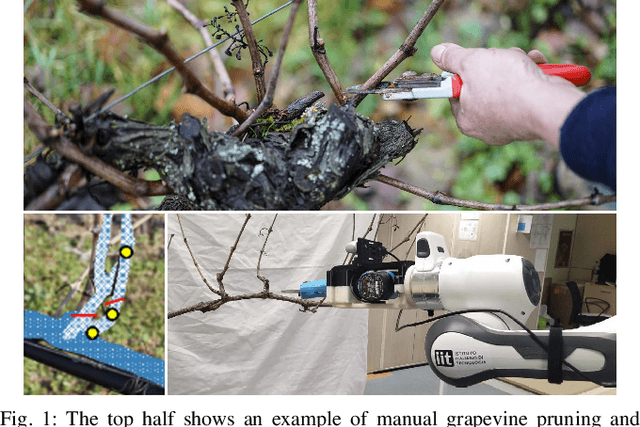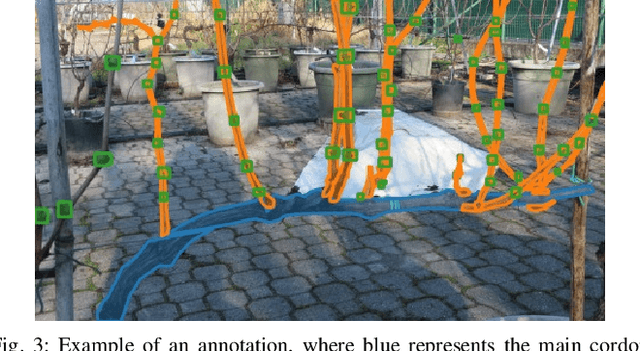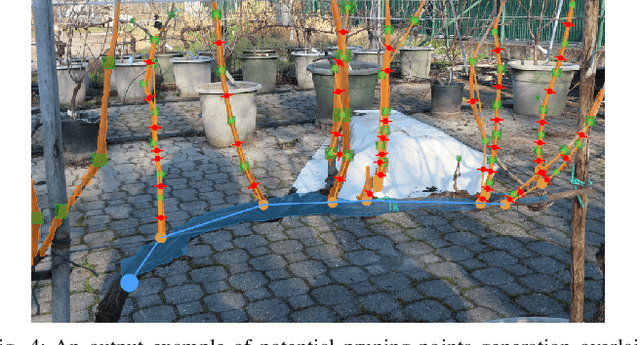Grapevine Winter Pruning Automation: On Potential Pruning Points Detection through 2D Plant Modeling using Grapevine Segmentation
Paper and Code
Jun 08, 2021



Grapevine winter pruning is a complex task, that requires skilled workers to execute it correctly. The complexity of this task is also the reason why it is time consuming. Considering that this operation takes about 80-120 hours/ha to be completed, and therefore is even more crucial in large-size vineyards, an automated system can help to speed up the process. To this end, this paper presents a novel multidisciplinary approach that tackles this challenging task by performing object segmentation on grapevine images, used to create a representative model of the grapevine plants. Second, a set of potential pruning points is generated from this plant representation. We will describe (a) a methodology for data acquisition and annotation, (b) a neural network fine-tuning for grapevine segmentation, (c) an image processing based method for creating the representative model of grapevines, starting from the inferred segmentation and (d) potential pruning points detection and localization, based on the plant model which is a simplification of the grapevine structure. With this approach, we are able to identify a significant set of potential pruning points on the canes, that can be used, with further selection, to derive the final set of the real pruning points.
 Add to Chrome
Add to Chrome Add to Firefox
Add to Firefox Add to Edge
Add to Edge